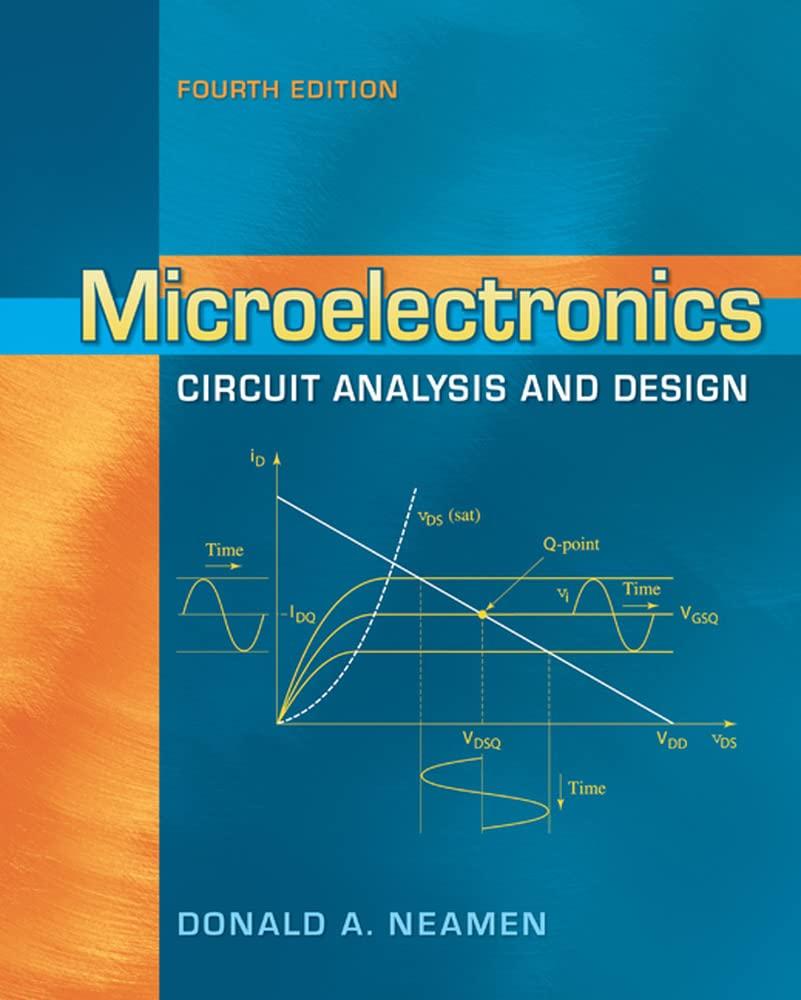Using the results of Problem 4.11, find the peak amplitude (V_{g s}) that produces a second-harmonic distortion
Question:
Using the results of Problem 4.11, find the peak amplitude \(V_{g s}\) that produces a second-harmonic distortion of 1 percent if \(V_{G S}=3 \mathrm{~V}\) and \(V_{T N}=1 \mathrm{~V}\).
Data From Problem 4.11:-
In our analyses, we assumed the small-signal condition given by Equation (4.4). Now consider Equation (4.3(b)) and let \(v_{g s}=V_{g s} \sin \omega t\). Show that the ratio of the signal at frequency \(2 \omega\) to the signal at frequency \(\omega\) is given by \(V_{g S} /\left[4\left(V_{G S}-V_{T N}\right)\right]\). This ratio, expressed in a percentage, is called the second-harmonic distortion. [Hint: Use the trigonometric identity \(\sin ^{2} \theta=\frac{1}{2}-\frac{1}{2} \cos 2 \theta\).]
![]()
![]()
Step by Step Answer:

Microelectronics Circuit Analysis And Design
ISBN: 9780071289474
4th Edition
Authors: Donald A. Neamen





